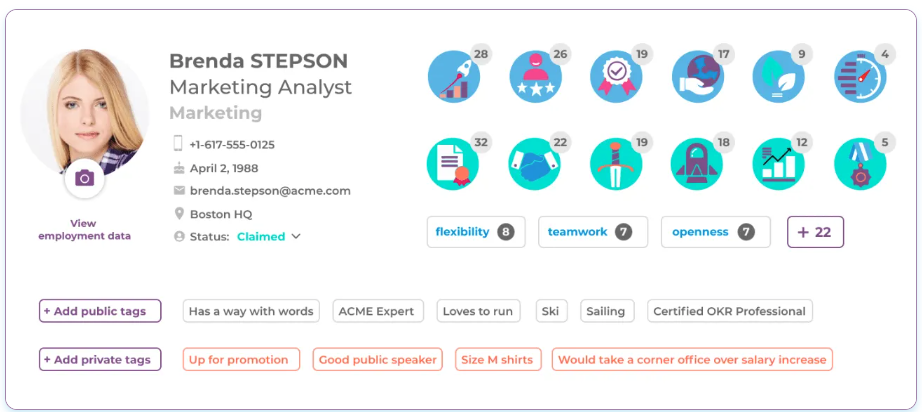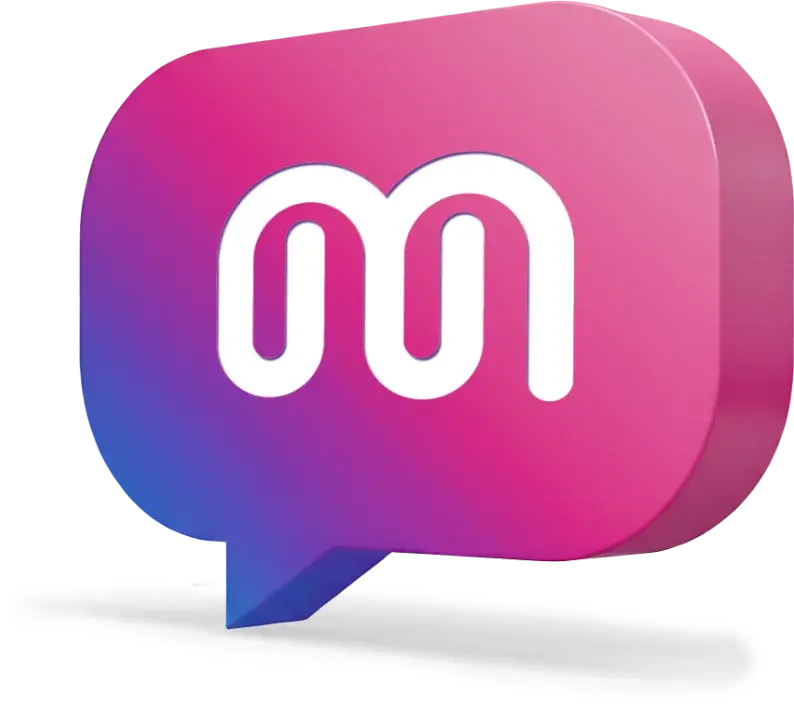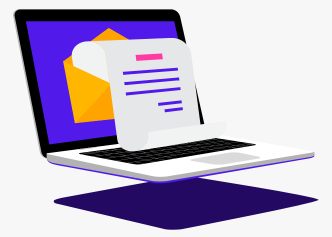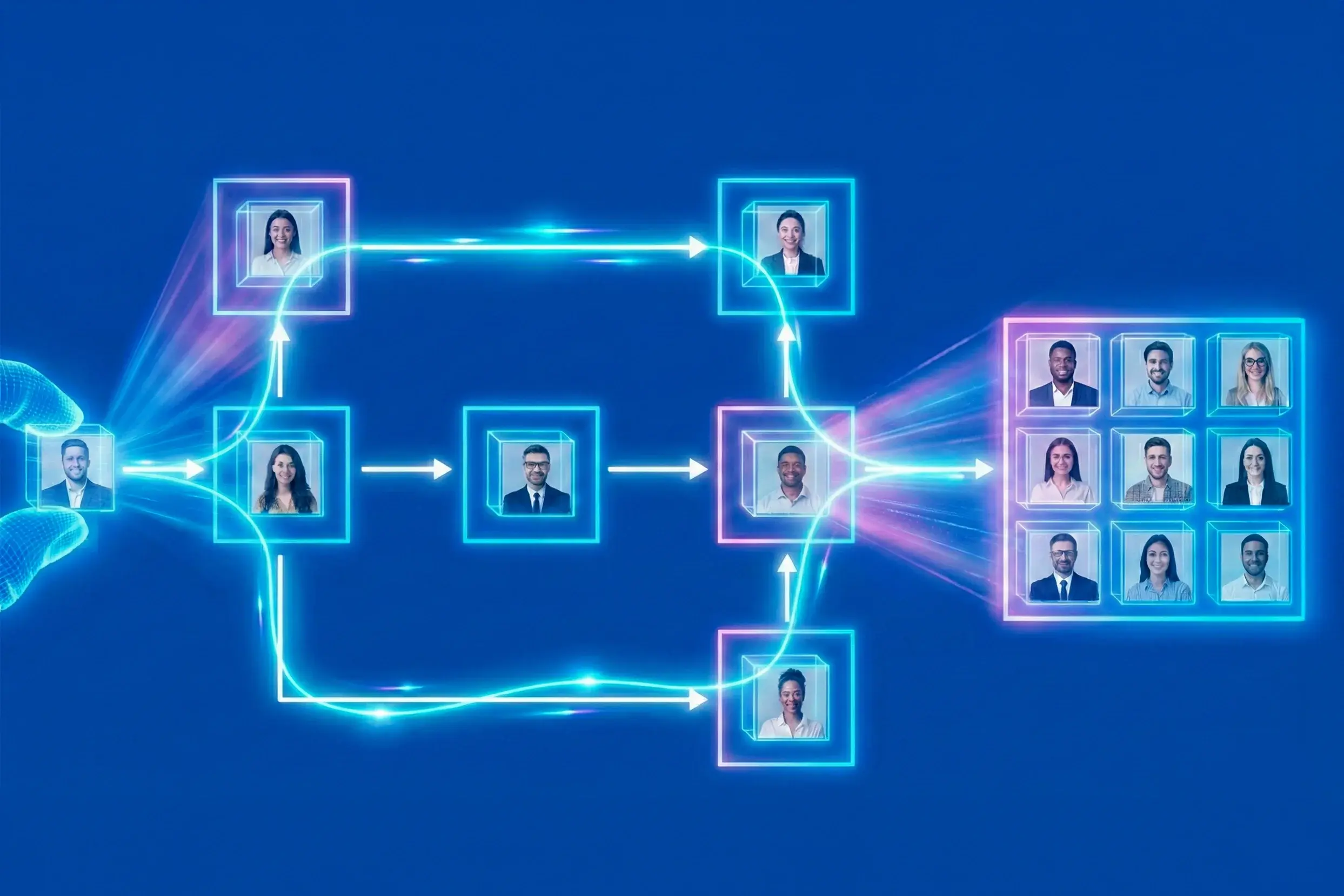SECTION
Employees Profile: What Is It and How to Create It?

Listen to this article:
Note: This article was updated on December 13, 2024, adding employee profile examples, their strategic value, best practices, and solutions to overcoming the most common challenges.
Attracting, engaging, and retaining top talent in your company is no easy job. Moreover, modern companies are under immense pressure to align their people with strategic goals. Yet, many struggle with fragmented employee information, disengaged teams, and limited visibility into individual contributions.
Employee profiles help the hiring process and retain your best people. An employee profile isn’t just a static document; it’s a dynamic tool that centralizes employee data, supports alignment with company objectives, and enables informed decision-making.
Whether you’re in HR, organizational development, people analytics, or the C-suite, this guide will show how these profiles can drive performance, engagement, and strategic growth.
What is an employee profile?
An employee profile is a structured document or digital record that consolidates critical employee data, offering insights into their skills, achievements, and aspirations. This document is typically used as part of the hiring process and can also be used for performance reviews, promotions, and other HR-related purposes.
To recruit the best talents for your company, you need to know the qualities and skills of your future colleagues before posting the recruitment announcement. Therefore, an employee profile should be a "candidate persona" with all the criteria the potential candidates must meet to move on to the next step.
However, in an organization that values technology, an employee's profile could be a personal page where they share useful personal information with colleagues. Such a profile can have many advantages for those already hired or future colleagues, especially when combined with employee segmentation strategies that help HR teams personalize development opportunities and engagement initiatives.
Below are the key components of employee profiles:
✅ Basic Details: Name, pronouns, contact info.
✅ Role-Specific Info: Skills, certifications, projects.
✅ Performance Data: Goals (OKRs/KPIs), feedback, and recognition.
✅ Career Development: Training, career goals, and mentorship opportunities.
✅ DE&I Metrics: Pronouns, languages, and inclusion contributions.
What is the strategic value of employee profiles?
Like most businesses, you probably have a good handle on your customer profiles. But what about your employee profiles? Sure, you know the basics—name, job title, years of experience, etc. But do you know what makes your people tick? What motivates them? What stresses them out?
Knowing the answers to these questions can be extremely valuable for retaining and engaging your people. Below, we list the benefits of employee profiles depending on your role:
Benefits for HR directors & organizational development leaders
- Save time and make HR processes more efficient by centralizing essential information about each employee.
- Create the framework to align individual contributions with organizational OKRs.
- The centralization of achievements and contributions makes it easier for HR to identify opportunities for recognition.
Benefits for people analytics teams
- Help people analytics teams extract actionable insights for skill gaps, team dynamics, and workforce planning.
- Provide a better understanding of workforce diversity by identifying areas that lack diversity.
Benefits for C-level executives
- Make informed, data-driven decisions on resource allocation, promotions, and professional development opportunities.
- Plan workforce strategies for growth and innovation and give executives a better understanding of their people.
Benefits for employees
- Better understanding of how their roles contribute to organizational goals and overall business growth.
- Accessible framework to showcase their contributions and capabilities, contributing to morale, productivity, and job satisfaction.
Employee profile examples
No single format works for all profiles, and your chosen template will depend on your company's requirements. Here are two employee profile examples you may use as models to get you started.
Template 1: Role-Specific Profile
Name: Sarah TanPronouns: She, Her, Hers
Job Role: Software Developer
Department/Team: Engineering
Phone Number: 123-456-789
Work Email: sarahtan@company.com
Birthday: November 11
Location: Remote Partner
Employment Date: March 5, 2017
Skills: Python, AWS, Kubernetes
Certifications: AWS Certified Solutions Architect, Scrum Master
Performance: Achieved 110% of quarterly OKRs.
Career Goals: Transition to solution architect within 2 years.
Bio: Passionate about building clean, efficient code and eager to learn the latest technologies.
Hobbies and Interests: Enjoys hiking, photography, and exploring new tech innovations.
Template 2: Leadership Profile
Name: David Ruiz
Pronouns: He, Him, His
Job Role: HR Manager
Department: Human Resources
Phone Number: 123-000-000
Work Email: davidruiz@company.com
Birthday: February 2
Location: New York office
Employment Date: June 25, 2022
Skills: Organizational skills, leadership skills, HR policies, onboarding
Certifications: ICAgile Certified Professional, KPI Certified Professional
Performance: Achieved 80% of quarterly OKRs
Career Goals: Aspires to move into a Chief Talent Experience Officer role within the next 2 years.
Bio: Smile; tomorrow can be worse!
Hobbies and Interests: Passionate about reading, traveling, and puzzles.
Best practices for building employee profiles
While there is no one-size-fits-all approach to building employee profiles as they depend on company size, industry, and needs, there are a few best practices to follow to ensure you get the most out of them:
1. Standardize profile formats across the organization
Employee profiles are internal documents and should be branded accordingly. When you create the ideal profile, consider following internal branding guidelines and crafting a unique template for your business: this will make them easier to read, strengthen company culture and identity, and help you remain consistent with the information you collect.
Create a consistent structure for employee profiles, including skills, certifications, and performance metrics, to ensure uniformity and streamline HR processes.
2. Update profiles quarterly to reflect real-time progress
While it is crucial to have well-structured templates to ensure consistency, these documents should still be flexible and adaptable for different roles and backgrounds. Refresh employee profiles every quarter to capture updated skills, achievements, and goals, keeping data current and actionable. We all know things move fast in the business world, so employee profiles should keep up with the changes.
3. Incorporate employee input to enhance relevance and engagement
When adopting employee profiles in your company, clearly explaining their scope and benefits is crucial. After that, seek feedback from your team and address any concerns. Involve employees in updating their profiles to ensure accuracy and foster ownership, boosting engagement and alignment with company goals.
You can do so via your internal communication platform, during an all-hands meeting, via email, or in a group chat. Regardless of how you encourage your team to fill these profiles, provide clear guidelines on completing them, and send them constant reminders to update them in case changes occur.
Overcoming common challenges in building employee profiles
Employee profiles are not complicated documents. However, you can still face challenges when building or adopting them in your company. Below are the most common challenges organizations face and our solutions to overcome them:
Challenge 1: Fragmented data systems
Employee profiles can be stored in different places like any other internal document. However, because they contain sensitive information, storing them in a centralized location that's secure, easy to access, and navigate is essential.
💡 Solution: You can use an integrated HRIS platform like Mirro to consolidate information. Our platform offers a document management tool to store and manage all critical company and employee information. It is easier for managers, HR colleagues, and employees to locate any information they need with all profiles in one place.
 Employee profile in Mirro
Employee profile in Mirro
Challenge 2: Resistance to adoption
Another common challenge regarding employee profiles is the resistance to adoption. This usually happens when team members don’t see the value and benefits.
💡 Solution: The success of these profiles depends on employee participation. So, to overcome this challenge, showcase personal benefits for your people, such as career development, a high level of transparency, or time-saving when looking for certain information.
Challenge 3: Ensuring data privacy
Last but not least, most people would be reluctant to fill out employee profiles due to security concerns. To help put this concern at ease, make sure to develop and communicate clear policies for data governance and compliance.
💡 Solution: For example, Mirro's performance management software stands out in terms of its security. Our platform backs all data to a secure private cloud and lets you enjoy flexible Access Rights management. Moreover, our tool is GDPR-compliant, and we have strong privacy policies and the technology to keep you secure.
Exploring new angles with employee profiles
While employee profiles are often viewed through the lens of performance and HR efficiency, they can potentially drive much more than just day-to-day operations. Here are several innovative ways to make them innovate in your organization:
Employee profiles as a tool for DE&I initiatives
Employee profiles can be powerful tools to track and promote diversity metrics, ensuring that your initiatives are more than just words on a page. Use profiles to highlight individual contributions and track the career growth of underrepresented groups, providing actionable insights that can drive meaningful change.
Driving career development with profiles
Employee profiles are more than just a snapshot of current roles—they can also map out personalized learning paths and mentorship opportunities. When you use profiles to track career goals, skills, and aspirations, you create transparent career pathways that empower your people to grow and evolve.
Succession planning with employee profiles
Effective succession planning requires understanding your employees' competencies, potential, and ambitions. Using employee profiles to track these factors, you can identify future leaders and build a talent pipeline ready for the next step. These profiles can be linked to your broader talent strategies, helping you plan for tomorrow's leadership today.
Profiles in remote work
As remote and hybrid work models are already the norm, ensuring visibility and collaboration across decentralized teams is more important than ever. Employee profiles are key to enhancing collaboration in such environments. Providing a centralized space for key information makes it easier for team members to connect, no matter where they're working from.
Integration with OKRs
Employee profiles can be crucial in aligning individual goals with business objectives. By linking profiles to OKRs, you can create a powerful system that ensures everyone's personal goals drive the company's success.
Customization by industry
No two industries are exactly the same, and neither should employee profiles be. Tailoring profiles to industry-specific needs in highly specialized sectors like tech, healthcare, or manufacturing can boost operational efficiency and effectiveness. Highlighting key fields for each industry ensures that profiles are always relevant, useful, and aligned with the unique demands of the field.
Employee profile software for a better team experience
So, after knowing all the perks, are you ready to enhance your workforce strategy? Here’s what you can do:
- Audit your current profiles. Identify gaps in structure or adoption to ensure you make the most out of them.
- Build profiles tailored to your needs. Use our employee profile examples to get a good start.
- Explore tools to simplify and scale employee profiles. A platform like Mirro can help with these profiles. Contact us for more information about our services and offers.
Employee profiles aren’t just HR tools—they’re catalysts for alignment, engagement, and business success. By building robust profiles, your organization can empower employees, unlock strategic insights, and drive sustainable growth.
Let’s turn profiles into performance drivers. Start today.
Frequently Asked Questions
-
How can employee profiles help align individual contributions with organizational goals?
-
What should an ideal employee profile include to provide actionable insights?
-
How can employee profiles improve engagement and recognition?
People sometimes struggle to see how their day-to-day work ties with the bigger picture of company objectives. This misalignment can lead to disengagement and lack of motivation. Employee profiles solve this by transparently connecting individual goals and the company’s OKRs.
Leadership often needs more visibility into workforce distribution, skills, and capabilities. Therefore, the ideal employee profile should contain basic information and detailed insights into achievements, skill sets, career goals, and performance metrics. These documents become powerful decision-making tools by including this dynamic data, offering insights for promotions, skill gaps, training needs, and overall talent strategy.
Many people feel undervalued when their achievements aren't tracked or recognized, and their career progression is unclear. Employee profiles help bridge this gap by allowing HR teams to track accomplishments, provide ongoing feedback, and set personalized development plans. When individuals see that their contributions are acknowledged and that there are clear pathways for growth, engagement increases, morale improves, and retention rates rise.






